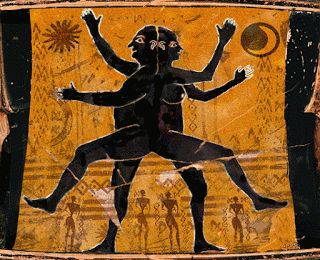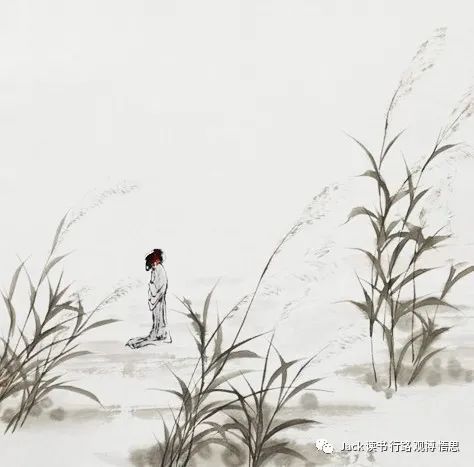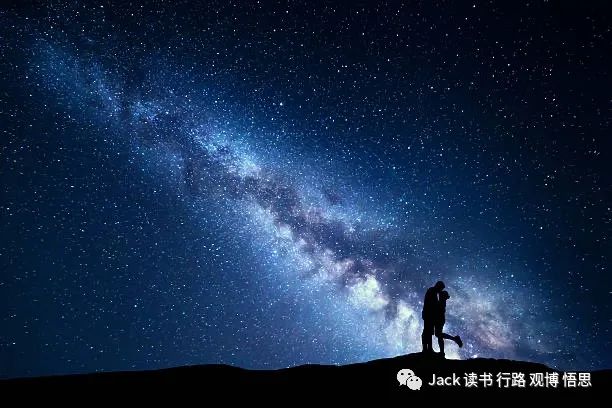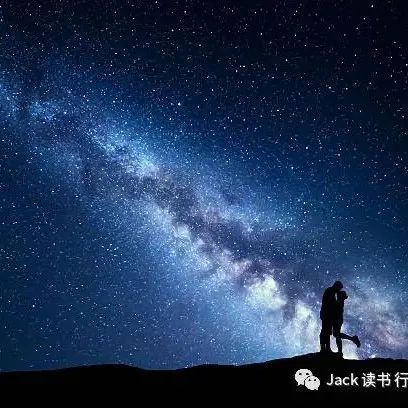Links Between East and West 12 Why Do We Love? 东西方的连接12 - 为什么我们会爱?
Love is probably the strongest and most perplexed and radical emotion a person would ever experience. It is a natural roller-coaster ride that brings great joy and great pain, an irresistible feeling of victory and at the same time defeat. Throughout human history, across cultures, people have proposed intriguing ideas concerning the question “why do we love”, or “why do we want to put ourselves into such rides?” The ideas can be generally summarized into at least two parts: "Love creates wholeness", and "love is the escape from loneliness".

Love creates wholeness. This idea is explored by multiple philosophers and theorists globally. In ancient Greece, Plato argues that “love makes us whole again”. In his work The Symposium, Plato described a party where the comedian Aristophanes told a captivating story. Once, humans had two heads, four legs and arms. Aristophanes defined this a “whole” human-being. Then, one day, the humans angered the gods, and Zeus threw a lightning bolt and pierced the “whole” human into half. That explains why today we normally only have one head and two arms and legs. Plato explained that “love is the longing to find a soulmate who will make us whole again”. It is an innate feeling shared by all people because we want to return to that wholesome state defined by Aristophanes.

Similar ideas were shared on the other side of the world in ancient China. The great literary work called Shi Jing contains many love poems that express this longing to find the loved one to be whole again. In “Jian Jia”, one of the most renowned pieces, the author, through the subtle use of repetition and rhythm, poetically delivers his desire to meet his lover that seems to be nearby. “The reeds and rushes are very green; the white dew becomes hoar-frost; She whom I call “the woman” is somewhere near the stream; I got up the stream after her, the road is difficult and long; I go down the stream after her, but she eludes me into the midst of the stream”. Through this poem, a reader can feel the same idea of “wholeness” vibrate with the environmental descriptions, that the male character longs to seek out his loved one to piece together his soul, even though he encounters many difficulties.
Love is also the escape from loneliness. This idea is most thoroughly explored by the British philosopher Bertrand Russell. Russell claimed that the “fear of the cold, cruel world tempts us to build hard shells to protect and isolate ourselves”. But since people eventually crave to escape from this isolated and lonesome state, love arrives to help them overcome the fear. When people can overcome the fear, they can break open the shell, leave loneliness behind, and engage more abundantly in life.

From my point of view, we love for a slightly different reason: We love to find perfection, to find the experience of perfection, or the experience of entering an ideal world. In our minds, we all have an idea or portrait of a perfect human being that would meet all our dreams and desires. On a larger perspective, we all want to, with that human being, experience something vivid, stimulating, But when looking at ourselves, we always are unsatisfied that we are not that perfect human being, and we are not living in that vivid, stimulating world. Love can provide us with a sensation that is nearest to the limit of a utopia world where we can feel the impacts brought by strong surges of emotion. This world is kind of like fantasy, iridescent, intense, and exhilarating. Even if we only enter such a world for a moment, it is still worth it and is a valuable experience. We all will eventually fade into the void and face death. What makes life truly worthwhile are such experiences that take us to a new world.
Overall, looking across the world and across history, various philosophers and theorists have come up with myriads of theories and original ideas about why we love. All of these theories and original ideas initiate from our inner and innate natural desires. Love can be short-lived, but that splendid moment can ignite one’s entire life.
WORKS CITED
"Why Do We Love? A Philosophical Inquiry." YouTube, uploaded by Ted-Ed, Ted-Ed,
16 Feb. 2016, www.youtube.com/
watch?v=yJSiUm6jvI0&list=PLeqjFzA5kQuSHGzdmTAy4IvG3UXZ15Tcr&index=2.
Accessed 27 Nov. 2021.
PICTURES CITED
https://ordinary-times.com/2017/02/14/a-largish-excerpt-from-platos-symposium-for-valentines-day-aristophaness-speech/
http://www.89zhe.com/article/show-22210.html
https://www.istockphoto.com/photos/man-giving-a-star-from-the-sky-to-a-woman
爱可能是一个人所经历的最强烈、最困惑和最激进的情感。它是一种自然的过山车,可能会带来巨大的快乐和巨大的痛苦,一种不可抗拒的胜利和同时失败的感觉。在整个人类历史上,在不同的文化中,人们提出了关于 "我们为什么要爱",或 "我们为什么要把自己置于这样的‘过山车’中 "这一问题的耐人寻味的想法。这些想法一般可以归纳为至少两个点,即“爱创造了整体性”与“爱是对孤独的逃避”。

爱创造了整体性。全球多个哲学家和理论家都在探讨这一思想。在古希腊,柏拉图认为 "爱让我们重新变得完整"。在他的作品《会饮篇》中,柏拉图描述了一个聚会,喜剧作家阿里斯托芬讲述了一个引人入胜的故事。曾经,人类有两个头,四条腿和胳膊。阿里斯托芬把这定义为一个 "完整 "的人。然后,有一天,人类激怒了众神,宙斯扔出一道闪电,将 "完整 "的人类劈成两半。这解释了为什么今天我们只有一个头和两只手与脚。柏拉图解释说,"爱是渴望找到一个能使我们重新完整的灵魂伴侣"。这是所有人共有的一种天生的感觉,因为我们想回到阿里斯托芬定义的那种“正常”的整体状态。

在世界的另一边,古代中国也有类似的想法。《诗经》的文学作品中有许多描绘爱情的佳篇,表达了人们对于通过爱而达到整体的渴望。在最著名的作品之一 《蒹葭》中,作者通过对重复和韵律的微妙运用,诗意地表达了他对似乎就在附近但爱而不得的爱人的追求。"蒹葭苍苍,白露为霜。所谓伊人,在水一方。溯洄从之,道阻且长。溯游从之,宛在水中央”。通过这首诗,读者可以感受到 "整体性 "的思想与环境描写的振动,即男性角色渴望寻找他的爱人来拼凑他的灵魂,尽管他遇到了很多困难。
爱也是对孤独的逃避。英国哲学家伯特兰-罗素(Bertrand Russell)对这一观点的探讨最为透彻。罗素声称,"对冰冷、残酷的世界的恐惧,诱使我们建立坚硬的外壳来保护和孤立自己"。但是,由于人们最终渴望逃离这种孤立和孤独的状态,所以爱的到来帮助他们克服恐惧。当人们能够克服恐惧时,他们就能打破外壳,把孤独抛在身后,更丰富地投入到生活中。

从我的观点来看,我们爱的原因略有不同。我们的爱是为了寻找完美,寻找完美的体验或进入一个理想世界的体验。在我们的脑海中,我们都有一个完美人类的想法或画像,可以满足我们所有的梦想和欲望。从更大的角度来看,我们都想和那个人一起,体验一些生动、刺激的东西,但当我们看自己时,我们总是不满意,因为我们不是那个完美的人,我们没有生活在那个生动、刺激的世界里。爱可以为我们提供一种感觉,这种感觉最接近乌托邦世界的极限,在那里我们可以感受到强烈的情感涌动所带来的影响。这个世界有点像童话,斑斓、强烈、令人振奋。即使我们只进入这样的世界片刻,也是值得的,是一种宝贵的经验。我们最终都会逐渐走向虚无,面对死亡。使生命真正有价值的正是这样的经历与体验,它把我们带到一个全新的世界。
总的来说,纵观世界和历史,各种哲学家和理论家已经提出了无数关于我们为什么爱的理论和原始想法。所有这些理论和原始想法都来自于我们内在的和与生俱来的自然欲望。爱可能短暂,但那绚烂的瞬间足以点燃你整个生命。
- 本文标签: 原创
- 本文链接: http://www.jack-utopia.cn//article/426
- 版权声明: 本文由Jack原创发布,转载请遵循《署名-非商业性使用-相同方式共享 4.0 国际 (CC BY-NC-SA 4.0)》许可协议授权










